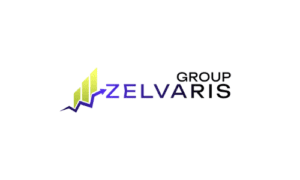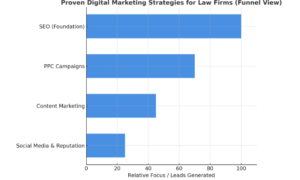Artificial intelligence (AI) is revolutionizing industries worldwide, and the legal field is no exception. Among its many applications, AI legal research stands out as one of the most transformative innovations. By leveraging machine learning, natural language processing (NLP), and data analytics, AI tools are streamlining the traditionally time-intensive process of legal research. However, despite its growing adoption, misconceptions and myths about AI legal research persist, often hindering its acceptance and optimal use.
In this article, we’ll debunk some of the most common myths about AI legal research, separating fact from fiction to provide a clearer understanding of its potential and limitations.
Myth 1: AI Legal Research Will Replace Lawyers
One of the most widespread fears about AI in the legal field is that it will render lawyers obsolete. This concern often stems from misunderstanding AI’s capabilities.
Reality: AI is a tool, not a replacement.
AI legal research tools are designed to augment a lawyer’s abilities, not replace them. While these tools can handle repetitive and time-consuming tasks—such as identifying relevant case law, analyzing legal trends, or reviewing contracts—they cannot replicate the nuanced judgment, ethical reasoning, and creative problem-solving skills that human lawyers bring to the table.
Instead of replacing lawyers, AI empowers them to focus on higher-value tasks like strategic planning, client counseling, and courtroom advocacy. For example, AI can quickly surface relevant case precedents, enabling lawyers to spend more time crafting compelling arguments.
Myth 2: AI Legal Research Is Only for Big Law Firms
Some believe that AI legal research tools are exclusive to large law firms with extensive budgets, leaving smaller firms and solo practitioners at a disadvantage.
Reality: AI is becoming increasingly accessible.
As AI technology evolves, its cost and complexity are decreasing. Today, many AI-powered legal research platforms offer scalable pricing models tailored to small and medium-sized firms. Additionally, some tools provide free trials or affordable subscription plans, making it easier for solo practitioners to incorporate AI into their workflows.
Furthermore, the democratization of AI legal research is leveling the playing field, allowing smaller firms to compete more effectively with larger organizations. By using AI to optimize efficiency, smaller firms can provide high-quality services at competitive prices.
Myth 3: AI Legal Research Is Difficult to Use
Many legal professionals, especially those less familiar with technology, worry that adopting AI tools will require extensive training and technical expertise.
Reality: Most AI tools are designed for user-friendliness.
Modern AI legal research platforms prioritize intuitive interfaces and easy integration into existing workflows. Many tools feature natural language search capabilities, allowing users to query the system in plain English (or other languages) without needing specialized technical knowledge.
Additionally, vendors often provide comprehensive training, customer support, and tutorials to help users get started. As a result, lawyers and legal staff of all tech skill levels can quickly adapt to using AI-powered tools.
Myth 4: AI Legal Research Poses Significant Ethical Risks
The ethical concerns surrounding AI, such as data privacy breaches and algorithmic bias, often make legal professionals wary of integrating these tools into their practice.
Reality: Ethical risks can be mitigated with proper safeguards.
While ethical challenges exist, they are not insurmountable. Reputable AI legal research platforms adhere to strict data security and privacy standards, ensuring that client information remains confidential. Additionally, ongoing advancements in algorithm design aim to reduce bias and enhance fairness in AI outputs.
To further address ethical concerns, legal professionals should stay informed about best practices, such as verifying AI-generated results and maintaining transparency with clients about the use of AI in their cases.
Myth 5: AI Legal Research Is Only Useful for Litigation
Another misconception is that AI legal research is solely beneficial for litigators seeking case law and legal precedents.
Reality: AI has applications across all legal practice areas.
AI legal research tools are versatile and can assist in various areas of law, including corporate, intellectual property, contract law, and compliance. For example:
- Transactional Law: AI can help draft and review contracts by identifying potential risks, inconsistencies, or missing clauses.
- Regulatory Compliance: AI tools can track changes in laws and regulations, ensuring that businesses remain compliant with evolving legal standards.
- Intellectual Property: AI can streamline patent searches and trademark analysis by analyzing vast databases of IP filings.
By expanding its use beyond litigation, AI is proving to be a valuable asset across the legal industry.
Myth 6: AI Will Make Legal Research Impersonal
Critics argue that relying on AI tools might make the research process more mechanical, sacrificing the human touch that clients value.
Reality: AI enhances, not diminishes, the personal aspect of legal practice.
AI legal research tools save lawyers significant time, allowing them to focus on building stronger client relationships and delivering tailored solutions. With AI handling routine tasks, lawyers can dedicate more attention to understanding their clients’ needs and crafting personalized strategies.
Moreover, AI can help lawyers identify trends and insights that might otherwise go unnoticed, enabling them to provide more informed advice and better outcomes.
The Future of AI Legal Research
As we debunk these myths, it’s clear that AI legal research is a powerful tool with the potential to transform the legal profession for the better. Far from being a threat, AI empowers legal professionals to work smarter, faster, and more efficiently.
Looking ahead, we can expect further advancements in AI technology, such as improved natural language understanding, real-time legal updates, and predictive analytics. These innovations will continue to enhance the capabilities of AI legal research tools, making them even more indispensable in the legal field.
However, it’s crucial for lawyers and legal professionals to approach AI adoption with a balanced perspective—embracing its benefits while remaining vigilant about its limitations and ethical implications. By doing so, they can harness the full potential of AI to deliver better outcomes for their clients and the legal system as a whole.
Conclusion
The myths surrounding AI legal research often stem from misunderstandings or a fear of change. By addressing these misconceptions, we can appreciate the true value of AI as a tool that complements and enhances human expertise.
Whether you’re a seasoned litigator, a corporate attorney, or a solo practitioner, adopting AI legal research can help you stay competitive in an evolving legal landscape. It’s not about replacing lawyers; it’s about equipping them with the tools they need to succeed.
Read More From Techbullion



































